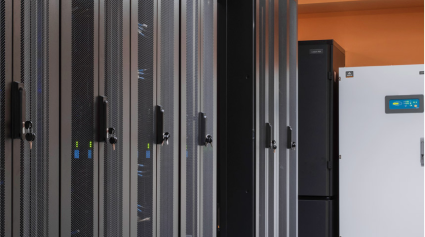Millions of UPS systems in data centers around the globe use various types of batteries to provide transitional backup power in the event of an unplanned outage. That means there are hundreds of millions of batteries storing vast amounts of largely unused energy scattered around the world. The data center industry has long seen this as an embedded inefficiency in a system that relentlessly roots out even modest inefficiencies. In developed parts of the world with reliable utility power, where outages are rare, why not leverage some of that unused power stored in batteries proactively?
VRLA batteries make it harder
Of course, it isn’t that simple. For decades, the vast majority of those batteries have been valve regulated lead acid (VRLA) batteries, similar to the battery in your car. Would you be comfortable using the “unused” energy in that battery when you aren’t using it to start your car? VRLA batteries aren’t especially efficient in the first place, and while they do the job required of a UPS, they run down relatively quickly. Tapping into VRLA batteries when they’re not being used for data center backup isn’t just risky, it’s reckless. For this reason, it rarely if ever happens.
Say ‘Hello” to the new energy storage technology: Lithium-ion batteries
Things are changing in the data center, however. Lithium-ion batteries are leading a wave of more advanced energy storage technologies that provide longer lasting, more versatile transitional power options. This presents opportunities for organizations to explore more creative uses of those batteries and potentially some elegant interactions between their UPS systems and the grid. This is one of the 2019 data center trends identified by a global team of experts from around Vertiv.
Why more intelligent UPS systems mean flexibility for the data center?
These more intelligent UPS systems and the more versatile batteries providing their backup power can give data center managers load management and peak shaving capabilities today, although few organizations are taking advantage. The possibilities extend far beyond that however, including using that stored energy to help the utility operate the electric grid. It’s not hard to envision a future where those UPS systems are unlocking a new revenue stream in those batteries.
There are questions of course – not the least of which is just how comfortable organizations will be with farming out that power – but it’s exciting to see today’s technologies presenting these kinds of options.
What are your thoughts on leveraging intelligent UPS systems and advanced batteries for more sophisticated interactions with the grid?




